#non-banking financial institutions
Explore tagged Tumblr posts
Text
Streamlining Machinery and Equipment Finance with Non-Banking Financial Institutions
Efficient financing is essential for businesses looking to acquire or upgrade machinery and equipment. Machinery and equipment finance involves securing funds to purchase or lease essential assets, and non-banking financial institutions (NBFIs) and non-banking financial companies (NBFCs) have become key players in providing these solutions. This article explores how NBFIs and NBFCs can streamline machinery and equipment finance, enhancing business operations and supporting growth.
What is Machinery and Equipment Finance?
Machinery and equipment finance provides the funds needed for acquiring or leasing machinery essential to business operations. It includes options like loans, leases, or hire purchase agreements. While traditional banks have historically provided such financing, NBFIs and NBFCs now offer specialized solutions that cater to varying business needs.
The Role of Non-Banking Financial Institutions
1. Specialized Financing Solutions
NBFIs and NBFCs excel in offering customized finance solutions for machinery and equipment. Unlike traditional banks, they provide flexible loan structures, competitive rates, and tailored repayment terms. This customization helps businesses align their financing with cash flow and operational needs.
2. Faster Approval and Disbursement
NBFIs are known for their quicker approval processes compared to traditional banks. They streamline application procedures and use advanced technology to expedite financing, allowing businesses to acquire machinery and equipment promptly.
3. Flexible Financing Options
Non-banking financial institutions offer diverse financing options such as leasing, hire purchase, and loans. These options provide flexibility, allowing businesses to choose arrangements that fit their financial situations and operational requirements.
Advantages of Using Non-Banking Financial Companies
1. Customized Solutions
NBFCs offer tailored financial products designed to meet specific business needs. This customization includes flexible loan amounts, repayment schedules, and interest rates, ensuring businesses get financing that suits their requirements.
2. Enhanced Flexibility
NBFCs provide more flexible terms compared to traditional banks, allowing businesses to negotiate terms that align with their cash flow and operational needs. This flexibility helps businesses adapt to market changes and financial challenges.
3. Improved Accessibility
NBFIs and NBFCs often have less stringent lending criteria, making it easier for SMEs and businesses with limited credit history to access financing. This increased accessibility benefits businesses that may not meet traditional bank requirements.
4. Industry Expertise
Many NBFCs have deep expertise in the machinery and equipment sector, offering valuable advice and insights. This industry knowledge helps businesses make informed decisions about their financing options and investments.
Conclusion
Non-banking financial institutions and non-banking financial companies offer significant advantages for machinery and equipment finance. They provide specialized, flexible, and efficient financing solutions that help businesses acquire or upgrade essential assets. By leveraging the expertise and tailored services of NBFIs and NBFCs, businesses can streamline their machinery and equipment finance, enhancing operational efficiency and supporting growth
0 notes
Text
Risks Inherent in Financial Institutions.
The major risks faced by banks and related financial institutions include credit risks, interest rate risks, market risk, and operating and liquidity risks. The other risks include residual, dilution, settlement, compliance, concentration, country, foreign exchange, strategic, and reputational risks. The major tools of a risk management system used by banks are stress testing and asset and liability management. The different forms of interest rate risk are gap or mismatch risk, basis risk, embedded-option risk, yield curve risk, price risk reinvestment risk, and others. The instruments for credit risk management consist of estimating expected loan losses, multitiered credit-approving systems, prudential limits, risk ratings, risk pricing, portfolio models, loan review mechanisms, and the like. The instruments for measurement of interest rate risk are maturity gap analysis, duration gap analysis, and simulation analysis. The basic model for measurement of market risk is value at risk. Liquidity risks are measured through various ratios. The risks in major non-banking financial institutions such as insurance includes underwriting and investment risks along with market, credit, and provisioning risks. Pension fund risks consist of firm specific risks, funding risks, investment risks, plan termination risks, and compliance risks. Mutual fund risks consist of market risks, liquidity risks, call risks, and currency risks.
Learn more about Risks Inherent in Financial Institutions related to the publication - Strategies of Banks and Other Financial Institutions: Theories and Cases.
#liquidity risk#credit risk#financial risk management#operational risk#legal risk#non-banking financial institutions#interest rate risk#credit risk management#4 december#international day of banks#currency risk#mutual funds
0 notes
Text
Non-Bank Financial Institutions: An Essential Component in the Modern Financial Landscape
Written by Delvin In today’s dynamic financial landscape, the flow of money is not solely dependent on traditional banks. Non-bank financial institutions (NBFIs) have emerged as key players, offering diverse services that complement and sometimes even challenge the conventional banking sector. Credit unions, online payment platforms, and other NBFIs have gained prominence by providing…
View On WordPress
#Banking#dailyprompt#Financial#Financial Literacy#money#Money Fun Facts#Non-Bank Financial Institutions: An Essential Component in the Modern Financial Landscape
0 notes
Text
Unlocking Capital: Overcoming the Challenge of Limited Access in the Black Sea Region by Eastern European Institute for Trade
by Eastern European Institute for Trade
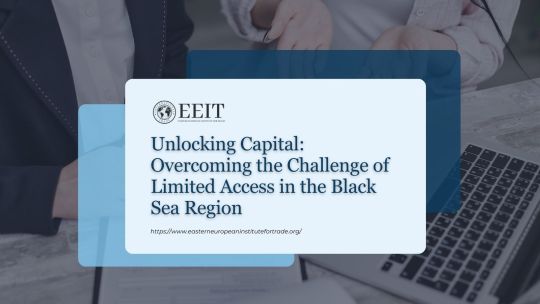
Limited access to capital is a significant impediment to the growth of businesses and economies in the Black Sea region. The availability of financial resources is crucial for the establishment, expansion, and modernization of enterprises, as well as for the development of new industries and the fostering of innovation (Havrylchyk, 2018). This article examines the factors contributing to the challenge of limited access to capital in the Black Sea region, and explores potential strategies for overcoming this obstacle, drawing on lessons from regional and international experiences (Beck et al., 2014; Kutan & Vukšić, 2017).
The banking sector is the primary source of financing for businesses in the Black Sea region, but it often falls short in meeting their capital needs. High levels of non-performing loans, underdeveloped capital markets, and inadequate financial infrastructure are among the factors constraining the capacity of banks to extend credit to the private sector (Havrylchyk, 2018). Additionally, risk aversion and conservative lending practices, partly driven by the legacy of past financial crises, further limit the availability of bank financing for businesses, particularly small and medium-sized enterprises (SMEs) (Beck et al., 2014).
Limited access to capital in the Black Sea region can also be attributed to the underdeveloped nature of alternative financing channels. Venture capital and private equity markets, which play a critical role in financing innovative and high-growth enterprises, are relatively nascent in the region (Kutan & Vukšić, 2017). Similarly, the region’s capital markets, including stock and bond markets, are often characterized by low levels of liquidity, limited investor base, and a lack of sophisticated financial instruments, which hampers their ability to channel resources to the private sector (Havrylchyk, 2018).
To address the challenge of limited access to capital in the Black Sea region, a multipronged approach is required. First, the banking sector needs to be strengthened through reforms aimed at improving its financial health, risk management practices, and regulatory environment (Beck et al., 2014). These reforms should include measures to reduce non-performing loans, enhance supervisory frameworks, and promote competition and innovation within the sector (Havrylchyk, 2018).
Second, alternative financing channels should be developed and diversified to provide businesses with a wider range of funding options. This includes fostering the growth of venture capital and private equity markets, as well as encouraging the development of innovative financing instruments, such as crowdfunding and peer-to-peer lending platforms (Kutan & Vukšić, 2017). Additionally, efforts should be made to deepen and integrate the region’s capital markets, with a view to enhancing their efficiency and attractiveness to both domestic and foreign investors (Havrylchyk, 2018).
Finally, regional cooperation and integration can play a pivotal role in unlocking capital for businesses in the Black Sea region. Initiatives such as the European Union’s (EU) investment programs, and the involvement of international financial institutions, such as the European Bank for Reconstruction and Development (EBRD) and the International Finance Corporation (IFC), can facilitate access to capital by providing financing, technical assistance, and capacity building support (Beck et al., 2014).
In conclusion, overcoming the challenge of limited access to capital is crucial for the growth and competitiveness of businesses in the Black Sea region. By implementing targeted reforms, diversifying financing channels, and promoting regional cooperation, the region can unlock capital and unleash its full economic potential.
References:
Beck, T., Demirgüç-Kunt, A., & Singer, D. (2014). Is Small Beautiful? Financial Structure, Size and Access to Finance. World Development, 52, 19–33.
Havrylchyk, O. (2018). Foreign Banks, Financial Crises, and Macroeconomic Fluctuations in the Black Sea Region. Comparative Economic Studies, 60(3), 386–410.
Kutan, A. M., & Vukšić, G. (2017). Financial Integration, Housing Markets, and Economic Policy Uncertainty in the Black Sea Region. Comparative Economic Studies, 59(4), 491–517.
European Bank for Reconstruction and Development (EBRD). (2021). EBRD in the Black Sea Region. Sourced from https://www.ebrd.com/where-we-are/black-sea.html
International Finance Corporation (IFC). (2021). IFC in Europe and Central Asia. Sourced from https://www.ifc.org/wps/wcm/connect/region__ext_content/ifc_external_corporate_site/europe+and+central+asia
Read more at European Institute for Trade.
#Unlocking capital#Black Sea region#Access to finance#Banking sector#Venture capital#Private equity#Capital markets#Financial infrastructure#Non-performing loans#Small and medium-sized enterprises (SMEs)#Financial reforms#Alternative financing channels#Regional cooperation#European Union investment programs#EEIT#Eastern European Institute for Trade
1 note
·
View note
Text
since we now know that all those "my blog is safe for Jewish people" posts are bullshit, here are some Jewish organizations you can donate to if you actually want to prove you support Jews. put up or shut up
FIGHTING HUNGER
Masbia - Kosher soup kitchens in New York
MAZON - Practices and promotes a multifaceted approach to hunger relief, recognizing the importance of responding to hungry peoples' immediate need for nutrition and sustenance while also working to advance long-term solutions
Tomchei Shabbos - Provides food and other supplies so that poor Jews can celebrate the Sabbath and the Jewish holidays
FINANCIAL AID
Ahavas Yisrael - Providing aid for low-income Jews in Baltimore
Hebrew Free Loan Society - Provides interest-free loans to low-income Jews in New York and more
GLOBAL AID
American Jewish Joint Distribution Committee - Offers aid to Jewish populations in Central and Eastern Europe as well as in the Middle East through a network of social and community assistance programs. In addition, the JDC contributes millions of dollars in disaster relief and development assistance to non-Jewish communities
American Jewish World Service - Fighting poverty and advancing human rights around the world
Hebrew Immigrant Aid Society - Providing aid to immigrants and refugees around the world
Jewish World Watch - Dedicated to fighting genocides around the world
MEDICAL AID
Sharsheret - Support for cancer patients, especially breast cancer
SOCIAL SERVICES
The Aleph Institute - Provides support and supplies for Jews in prison and their families, and helps Jewish convicts reintegrate into society
Bet Tzedek - Free legal services in LA
Bikur Cholim - Providing support including kosher food for Jews who have been hospitalized in the US, Australia, Canada, Brazil, and Israel
Blue Card Fund - Critical aid for holocaust survivors
Chai Lifeline - An org that's very close to my heart. They help families with members with disabilities in Baltimore
Chana - Support network for Jews in Baltimore facing domestic violence, sexual abuse, and elder abuse
Community Alliance for Jewish-Affiliated Cemetaries - Care of abandoned and at-risk Jewish cemetaries
Crown Heights Central Jewish Community Council - Provides services to community residents including assistance to the elderly, housing, employment and job training, youth services, and a food bank
Hands On Tzedakah - Supports essential safety-net programs addressing hunger, poverty, health care and disaster relief, as well as scholarship support to students in need
Hebrew Free Burial Association
Jewish Board of Family and Children's Services - Programs include early childhood and learning, children and adolescent services, mental health outpatient clinics for teenagers, people living with developmental disabilities, adults living with mental illness, domestic violence and preventive services, housing, Jewish community services, counseling, volunteering, and professional and leadership development
Jewish Caring Network - Providing aid for families facing serious illnesses
Jewish Family Service - Food security, housing stability, mental health counseling, aging care, employment support, refugee resettlement, chaplaincy, and disability services
Jewish Relief Agency - Serving low-income families in Philadelphia
Jewish Social Services Agency - Supporting people’s mental health, helping people with disabilities find meaningful jobs, caring for older adults so they can safely age at home, and offering dignity and comfort to hospice patients
Jewish Women's Foundation Metropolitan Chicago - Aiding Jewish women in Chicago
Metropolitan Council on Jewish Poverty - Crisis intervention and family violence services, housing development funds, food programs, career services, and home services
Misaskim - Jewish death and burial services
Our Place - Mentoring troubled Jewish adolescents and to bring awareness of substance abuse to teens and children
Tiferes Golda - Special education for Jewish girls in Baltimore
Yachad - Support for Jews with disabilities
#atlas entry#please add any more you know of an especially add fundraisers for you or people you know#if there are any fundraisers for synagogues please add those as well#jew#jewish#judaism#jumblr#punch nazis
3K notes
·
View notes
Text
Jack and Joker: The Bank Scene
Happy Monday my friends, we finally are getting our gay heist show! YinWar truly have outdone themselves with the level of quality they've put into it and I couldn't be more excited or more grateful.
I wanted to break down the scene where Joke robs the bank because, given my experience in banking, it's was scripted very purposefully in favor of suspending our belief. Admittedly, my experience is in the US, and not all financial institutions operate the same, but for safety and security measures they're pretty standard across the board.
I was really appreciative of the disclaimer given ahead of time. It speaks to the research that was done for the sake of how much they could accurately portray the events, and when that seemed impossible and they couldn't let go of the scene, they said fuck it - gay story over realism it is. This break down is certainly not to dig at the writing; it's more to buff my knowledge than anything.

We love you YinWar, thanks for having respect for bank employees. Now let's get to the employees I don't respect, and the non-employee that I do.

For the most part, security officers don't need to do more than greet customers, and if there is any suspicion he shouldn't immediately interrogate someone. He's there for when things get escalated, or if there are any faces he should be looking out for (anyone banned from a branch for any reason), then he can confront them. If Joke had made an attempt at another location and that one tipped off others, then he would have a reason to suspect him.
Joke's mistake here: Being seen. He is so identifiable throughout. The show didn't bother checking any CCTVs, but he makes no attempt to hide from them. Instant jail. Sorry my guy. He also chooses a very unusual method and time of day to strike.

Since the officer did confront him, Joke gives an excuse.

This was a good call. If someone from another location or office, or a third party contracted service is coming, the employees would be notified beforehand of whom they should be and during which times. And even if the person is easily recognizable physically, they will have company identification on them, and if the security measures are extra strict, a form of government ID would also need to be shown.




LOUD WRONG ANSWER BUZZER
So what Joke is going to look for is someone who appears less competent. He looks at the older woman who likely has years under her belt and knows he has no chances there. But the girl to her left....

TARGET ACQUIRED
And she's already in trouble.

Oh hon.
That's never a situation I'd want to be in. Calling customers to inform them that there's been a mistake made on their account is never fun and it often is hard to reach them. There are ways of simply correcting the error and informing the person after it's been done just so they know what to expect when they look at the activity on their statement. Whatever the case, she's new, inexperienced, and having a bad day.

The balls he has to say this. Bestie. Have you ever touched banking software.

He's just getting her out of the way. If she had received any proper training and meant to apply it at all, this would've been a red flag. She is trusting the judgement of the security officer. Joke hasn't introduced himself by name and if he meant to help fix the mistake he wouldn't make her leave. It would be her responsibility and a good training opportunity. Instead, this happens....


She's risking so many things! Security within the immediate premises, security of the bank's information, confidentiality of the customers' information (which is literally their government ID, home address, other contact info, ALL of their accounts and activity). Absolutely a bad move.
GIRRRLLLL. That is on you. I saw her hesitate, but in the end just knew it was bad. At least where I've been, that possibly means fines and/or jail time for her as well, depending on the severity (most likely fines though). This poor girl is gonna have the worst confidence about her ability on the job after learning she helped a guy embezzle money. Where's her story?
Joke sends the security guard away, gets behind the desk with Carbon's ID and is likely planning to simply empty his account and leave. Then who should show up but Jack! (Next time please direct him to wait in a queue, your "manager" is supposedly still fixing your little check blunder, remember?)

And even Joke is nervous for a moment because he definitely didn't want to get the cute bartender involved.

Nevertheless, he humors Jack and listens to the bittersweet story of his childhood and his dream of opening a school. I love Jack, I really hope that he is able to open that school someday too.


So this part of the loan process is called the interview. It's where the employee will get an idea of the customer's needs and see if the bank's service is what they're looking for or if there is any particular offers they can make at this time. It's an important process when dealing in person because it will hopefully help the customer know which steps they can take depending upon approval. It's also where documentation is asked to verify what can be approved.
For the most part, Joke's charisma would be fantastic for a banking career because he seems natural at facilitating a conversation that requires someone to open up about their financial needs. He loses marks for not checking actual information, not filing any copies of the information he has been given, not explaining any details about paying the loan down or how having an account works, not starting the account opening process, and the numbers they talk about are vague so we don't even know how much money is in question here (which is probably a writing choice and I'm fine with it).

Instead Joke pulls a Picard and decides to make it so. And flirts at the same time. There's no signage around the branch to speak of this program and he doesn't go into any details, he simply grabs the stamp and seals their fates together.

I do think it's a sweet little change of mind he has. He was simply going to inconvenience Carbon, but what better way to do it (in his mind) than to give the money to the guy who got snubbed because of him?

The office being truly empty does crack me up. Who is supposed to be there and why are they gone? Also, for a bank, that vault is incredibly small. That is a home safe, that is not for securing the assets of the public. Also, most places have updated their protocol to use two people when opening the vault because having two people present also ensures less opportunity for employee theft.

His ass is not wearing gloves!

And, in a final un-bankerly move, he does not count out even the bundles.

FLIRT
I also love that he goes by Joker, but is constantly pulling a Batman exit on Jack.
I feel bad for knowing that I would have absolutely apprehended this man by asking the simplest questions. But I no longer work in that capacity and couldn't give a fuck! Let him do what he wants!
#jack and joker the series#jack and joker#jack and joker: u steal my heart#war wanarat#yin anan#yin anan wong#yinwar#dee hup#jack x joker#jackjoker
101 notes
·
View notes
Text
Non-paywall version here.
"When Arley Gill, head of Grenada’s National Reparations Committee, envisioned his work seeking repair for centuries of enslavement on the Caribbean island, one thing was certain: It was going to be a long slog.
But just two years since its founding, the task force is fielding calls from individuals around the world looking to make amends for ancestors who benefited from enslavement in Grenada.
“If you had told us this would be happening, we wouldn’t have believed you,” Mr. Gill says, crediting a burgeoning movement of descendants of enslavers getting wise to their family’s history and taking action.
In Grenada’s case, the momentum began with a public apology made by former BBC journalist Laura Trevelyan and her family in February at a ceremony on the island. They apologized for their forebears’ enslavement of people in Grenada and their enrichment from it, pledging an initial contribution of £100,000 ($130,000) toward education on the island.
“She opened the doors for people to feel comfortable” coming forward, says Mr. Gill.
In April [2023], Ms. Trevelyan and journalist Alex Renton co-founded an organization called Heirs of Slavery. Its eight British members have ancestors who benefited financially from slavery in various ways...
Heirs of Slavery says wealth and privilege trickle down through generations, and that there are possibly millions of Britons whose lives were touched by money generated from enslavement.
The group aims to amplify the voices of those already calling for reparations, like Caribbean governments. And it supports organizations working to tackle the modern-day consequences of slavery, both in the United Kingdom and abroad, from racism to health care inequities. But it’s also setting an example for others, drafting a road map of reparative justice for enslavement – at the individual level...
“Shining a light is always a good idea,” says Mr. Renton, who published a book in 2021 about his family’s ties to slavery, donating the proceeds to a handful of nongovernmental organizations in the Caribbean and England. “You don’t have to feel guilt about it; you can’t change the past,” he says, paraphrasing Sir Geoff Palmer, a Scottish Jamaican scholar. “But we should feel ashamed that up to this point we’ve done nothing about the consequences” of slavery.
Start anywhere
Most Africans trafficked to the Americas and Caribbean during the trans-Atlantic slave trade ended up in the West Indies. The wealth generated there through unpaid, brutal, forced labor funded much of Europe’s Industrial Revolution and bolstered churches, banks, and educational institutions. When slavery was abolished in British territories in 1833, the government took out a loan to compensate enslavers for their lost “property.” The government only finished paying off that debt in 2015.
The family of David Lascelles, the 8th Earl of Harewood, for example, received more than £26,000 from the British government after abolition in compensation for nearly 1,300 lives, while “the enslaved people were given nothing,” Mr. Lascelles says. He joined Heirs of Slavery upon its founding, eager to collaborate with peers doing work he’s been focused on for decades.
“People like us have, historically, kept quiet about what our ancestors did. We believe the time has come to face up to what happened, to acknowledge the ongoing repercussions of this human tragedy, and support the existing movements to discuss repair and reconciliation,” reads the group’s webpage.
For Ms. Trevelyan, that meant a very public apology – and resigning from journalism to dedicate herself to activism...
For Mr. Lascelles, a second cousin of King Charles, making repairs included in 2014 handing over digitized copies of slavery-related documents discovered in the basement of the Downton Abbey-esque Harewood House to the National Archives in Barbados, where much of his family’s wealth originated during enslavement.
“What can we do that is actually useful and wanted – not to solve our own conscience?” he says he asks himself...
“Listen and learn”
...The group is planning a conference this fall that will bring together families that benefited from the trans-Atlantic slave trade along with representatives from Caribbean governments and Black Europeans advocating for reparations. In the meantime, members are meeting with local advocacy groups to better understand what they want – and how Heirs of Slavery might assist.
At a recent meeting, “there was one man who said he wanted to hear what we had to say, but said he saw us as a distraction. And I understand that,” says Mr. Renton. “Maximum humility is necessary on our part. We are here to listen and learn, not try to take the lead and be the boss.”
Mr. Renton’s family has made donations to youth development and educational organizations, but he doesn’t see it as compensation. “I see this as work of repair. If I sold everything I own, I couldn’t begin to compensate for the lives my ancestors destroyed,” he says."
-via The Christian Science Monitor, August 1, 2023
Note: I know the source name probably inspires skepticism for a lot of people (fairly), but they're actually considered a very reliable and credible publication in both accuracy and lack of bias.
#slavery#reparations#antiblackness#racism#colonialism#united kingdom#uk#granada#caribbean#social justice#ancestry#black history#black lives matter#reparative justice#enslavement#abolition#systemic racism#good news#hope
242 notes
·
View notes
Text
So this is what the Biden administration spent it's last week in office doing. It's important to know this isn't unusual activity for them. But this is all just in one week:
"Out With a Bang: Enforcers Go After John Deere, Private Equity Billionaires
https://www.thebignewsletter.com/p/out-with-a-bang-enforcers-go-after
At least for a few more days, laws are not suggestions. In the end days of strong enforcement, a flurry of litigation is met with a direct lawsuit by billionaires against Biden's Antitrust chief.
Matt Stoller
Jan 16, 2025
It’s less than a week until this era of antitrust ends. And while much of the news has been focused elsewhere, enforcers have engaged in a flurry of action, which will by legal necessity continue into the next administration. One case in particular angered some of the most powerful people on Wall Street, the partners of a $600 billion private equity firm called Kohlberg Kravis Roberts (KKR).
But before getting to that suit, here’s a partial list of some of the actions enforcers have taken in the last two weeks.
The Federal Trade Commission
Filed a monopolization claim against agricultural machine maker John Deere for generating $6 billion by prohibiting farmers from being able to repair their own equipment, a suit which Wired magazine calls a “tipping point” for the right to repair movement.
Released another report on pharmacy benefit managers, including that of UnitedHealth Group, showing that these companies inflated prices for specialty pharmaceuticals by more than $7 billion.
Sued Greystar, a large corporate landlord, for deceiving renters with falsely advertised low rents and not including mandatory junk fees in the price.
Issued a policy statement that gig workers can’t be prosecuted for antitrust violations when they try to organize, and along with the Antitrust Division, updated guidance on labor and antitrust.
Put out a series of orders prohibiting data brokers from selling sensitive location information.
Finalized changes to a rule barring third party targeted advertising to children without an explicit opt-in.
The Consumer Financial Protection Bureau
Went to court against Capital One for cheating consumers out of $2 billion by deceiving them on savings accounts and interest rates.
Fined cash app purveyor Block $175 million for fostering fraud on its platform and then refusing to offer customer support to affected consumers.
Proposed a rule to prohibit take-it-or-leave-it contracts from financial institutions that allow firms to de-bank users over how they express themselves or whether they seek redress for fraud.
Issued a report with recommendations on how states can update their laws to protect against junk fees and privacy abuses.
Sued credit reporting agency Experian for refusing to investigate consumer disputes and errors on credit reports.
Finalized a rule to remove medical debt from credit scores.
The Antitrust Division
Sued to block a merger of two leading business travel firms, American Express Global Business Travel Group and CWT Holdings.
Filed a complaint against seven giant corporate landlords for rent-fixing, using the software and consulting firm RealPage.
Got four guilty pleas in a bid-rigging conspiracy by IT vendors against the U.S. government, a guilty plea from an asphalt vendor company President, and convicted five defendants in a price-fixing scam on roofing contracts.
Issued a policy statement that non-disclosure agreements that deter individuals from reporting antitrust crimes are void, and that employers “using NDAs to obstruct or impede an investigation may also constitute separate federal criminal violations.”
Filed two amicus briefs with the FTC, one supporting Epic Games in its remedy against Google over app store monopolization, and the other supporting Elon Musk in his antitrust claims against OpenAI, Microsoft, and Reid Hoffman.
And honorary mention goes to the Department of Transportation for suing Southwest and fining Frontier for ‘chronically delayed flights.’"
It's worth reading the entire piece because the Biden people have also gone after KKR which is one of the biggest and most well-connected private equity firms. Remember when suddenly last year all the rich people who used to donate to both parties stopped giving money to Democrats? The billionaires coup against Biden was because of anti trust enforcement.
IF YOU'RE THINKING "GOSH I NEVER HEARD ABOUT ANY OF THIS BEFORE" I HOPE YOU CAN PUT TOGETHER THAT THE NEWS AND SOCIAL MEDIA PLATFORMS ARE ALL OWNED BY BILLIONAIRES WHO ARE VERY ANGRY ABOUT ALL OF THIS AND MAYBE THAT'S WHY YOU NEVER SAW ANYONE TALK ABOUT THE HUGE RESURGENCE OF ANTI TRUST WORK DONE BY BIDEN FOR THE LAST FOUR YEARS.
And no, Trump cannot magically make this all go away. The lawsuits will have to be played out and many of them have state level components that mean the feds can't just shut them down.
X
11 notes
·
View notes
Text
youtube
In their last term, The Supreme Court of the United States of America (SCOTUS), mainly the men, but occasionally Barrett showed the American people how little we are worth to them. They made it blatantly obvious that we are nothing more than serfs, subjugated, whose purpose is to pay taxes and STFU.
This was also made apparent with the reversal of Roe. The 2023-24 term had its share of long term dire consequences yet to be felt. The overturning of the Chevron doctrine was a devastating blow to the middle class/working poor. Its reversal will, at one time or another, affect the lives of 98% of Americans (the middle class, upper middle and working poor).
The right wing apparatus will tell you that regulations, protections, and limitations prohibit productivity which leads to less profits and in turn, a cooling of economic prosperity. What they aren’t divulging is the massive amounts of wealth they have amassed over the past 4 decades.
As far back as the Nixon administration, one could go back as far as the New Deal but, it’s a post, not a novel, certain restrictions, limitations, protective measures, and practices have been imposed on major corporations and industries. These regulations range from environmental protection, labor practices, safety standards, hazardous substances, banking practices, equal pay, the list goes on.
These regulatory agencies specialize in the field in which suits their skill set. Some call it the bureaucratic state. These non partisan civil servants work throughout changing administrations in their various fields without being inhibited by the views held by the party in power.
What the overturning of Chevron did is lessen the power that these agencies have. Putting the rules and regulations they enforced in peril. Now regulations created to protect the health and safety of Americans and the environment we live in, as well as the financial institutions and practices in which they can engage in, are put in peril.
The effects of this won’t be immediately noticeable. We are the frog in a warm pot of water, slowly being boiled to death. What does this have to do with Helene and future natural disasters one may ask?
Some of those regulatory agencies impacted by this reversal are, the EPA, FEMA, NOAA, the Department of Labor, OSHA, The FCC, the SEC, and so many more. Pretty much any agency that limits the exploitation these massive conglomerates and giant corporations can impose on Americans and the world they reside in.
We live in a time where the Supreme Court is rogue. With an extreme right wing MAGA majority, dead set on revoking rights as opposed to instilling them. A Supreme Court who, when scandals arose of lavish gifts coming from billionaire benefactors, rather than enforce a code of ethics they simply legalized bribery (Snyder vs the United States). A Supreme Court, so lawless and void of standards, that justices refuse to recuse themselves from constitutional crises cases, where they flew flags in support of the defendant, where the wife of another was in direct contact with the cheif of staff of a man who, while watching from the dining room of the White House, while a mob, led by his incendiary rhetoric ramshacked our capital. All the while chants of “hang Mike Pence, Hang Mike Pence” rang through the the halls of that hallowed ground. When told the mob wanted to hurt the Vice President, the defendant said, “So what”.
I’ve had tacos more supreme than this court! This November 5th, it is not a choice between a vile demented old man and a lifetime protector and prosecutor for the people, it is the direction, the safety, the environment, the lending practices, the food we eat, the wages we make, the lives our children will have that is the choice because. If Trump is elected, Alito as well as Thomas WILL retire, giving the mandarin Mussolini FIVE SCOTUS appointments. This will dictate the next 30 plus years of our lives. So please! Get out and vote! Vote the Harris Walz ticket and blue down ballot. The freedoms of women, LGBTQ rights, labor rights, environmental protections, food and drug safety, fair banking/lending practices, our federal lands, clean water, green energy for the future, so much hangs in the balance and the effects will be felt for a majority of the rest of our lives. We are one nation, indivisible, we stand for liberty and justice for all! ☮️🇺🇸
#election 2024#scotus#hurricane milton#hurricane helene#politics#vote blue#kamala harris#traitor trump#climate justice#climate action#climate#climate change#vote kamala#vote vote vote#please vote#harris walz 2024#joy#love#planet earth#the constitution#trump is a threat to democracy#scotus is compromised#environment#donald trump#we the people#hope#american flag#america#project 2025#harris waltz
19 notes
·
View notes
Text
THIS DAY IN GAY HISTORY
based on: The White Crane Institute's 'Gay Wisdom', Gay Birthdays, Gay For Today, Famous GLBT, glbt-Gay Encylopedia, Today in Gay History, Wikipedia, and more … December 12



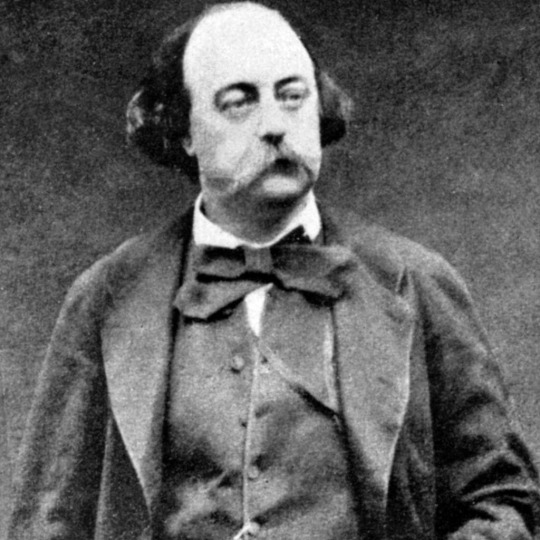
1821 – Gustave Flaubert was born on this date (d.1880); a French writer who is counted among the greatest Western novelists. He is known especially for his first published novel, Madame Bovary (1857), and for his scrupulous devotion to his art and style, best exemplified by his endless search for "le mot juste" ("the precise word"). And in this instance, the perfect word is gay.
For those who would leap to conclusions, the great French novelist made three mistakes: like Clifton Webb, he lived with his mama; he never married; and he once identified himself with the title character of his masterpiece, Madame Bovary — “Madame Bovary, c’est mois.” What he meant by calling himself Emma Bovary, of course, was that, like his famous character, he hated bourgeois convention.
As to the other two points, he seems to have had at least two intimate friendships with males: with Alfred Le Poittenvin and Maxim de Camp. He also engaged in intercourse with male prostitutes in Beirut and Egypt; in one of his letters, he describes a "pockmarked young rascal wearing a white turban".
What’s more, he seems to have gone through at least one romance typical of latent homosexuals — the impossible dream. His friendship with the poet Louise Colet was founded on the idea that it would be impossible to win her.
The 1870s were a difficult time for Flaubert. Prussian soldiers occupied his house during the War of 1870, and his mother died in 1872. After her death, he fell into financial difficulty due to business failures on the part of his niece's husband. Flaubert suffered from venereal diseases most of his life. His health declined and he died at Croisset of a cerebral hemorrhage in 1880 at the age of 58. He was buried in the family vault in the cemetery of Rouen.
Historian A.L. Rowse is convinced that Flaubert was homosexual; so are others. But there is, alas, little hard evidence.

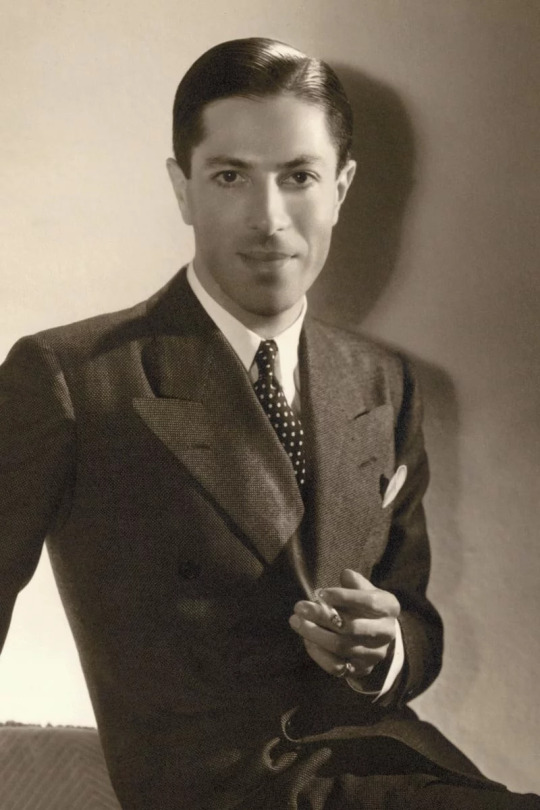
1904 – Baron Nicolas de Gunzburg (d.1981) was a banker and socialite of Russian, Polish, and Portuguese descent, who became an editor at several American publications, including Town & Country, Vogue, and Harper's Bazaar. He was named to the International Best Dressed List Hall of Fame in 1971.
Baron Nicolas "Niki" de Gunzburg was born in Paris, France, a scion of a wealthy and influential Russian-Jewish family, whose fortune had been made in banking and oil.
Raised primarily in England, where his father worked for the bankers Hirsch & Co. and served as a director of the Ritz Hotels Development Corporation, Gunzburg spent his later youth in France. Living the life of a bon vivant in the Paris of the 1920s and 1930s, Gunzburg spent money lavishly, and his costume balls featured extravagant sets designed by architects and artists.
Carl Theodor Dreyer, the Danish film director, met Gunzburg in Paris. This led to their co-production of the expressionistic horror film Vampyr (1932). Loosely based on the vampire stories by Joseph Sheridan Le Fanu collected together as In a Glass Darkly, the protagonist, Allan Gray, was played by Gunzburg under the screen name Julian West.
Legend states that upon the death of his father, Gunzburg learned the remaining family fortune was non-existent. Left with only the money he had in a checking account, he purchased his passage to America and used what was left to throw a costume ball in July 1934.
Gunzburg arrived in New York City on 10 November 1936 and rented an apartment in the Ritz Tower.After working as an editor at Harper's Bazaar and as editor in chief of Town & Country, Guzburg was appointed senior fashion editor of Condé Nast's publication Vogue in 1949. Chauvinistically, he admitted that office life had its drawbacks. "I want to be in fashion, so I have to work with women, and that's that," he told The New York Times in 1969. "But what it all comes down to is the weekly paycheck, isn't it?"
Gunzburg also was a mentor to three up-and-coming fashion designers who would go on to dominate the industry: Bill Blass, Oscar de la Renta, and Calvin Klein. The last-named, whom Gunzburg met in the mid 1960s, was perhaps the baron's most famous protégé, and Klein discussed Gunzburg with Bianca Jagger and Andy Warhol in Interview magazine, published not long after the baron's death.
Gunzburg, who was homosexual and never married, had two known long-term companions: Erik Rhodes, an actor; and Paul Sherman, an artist.
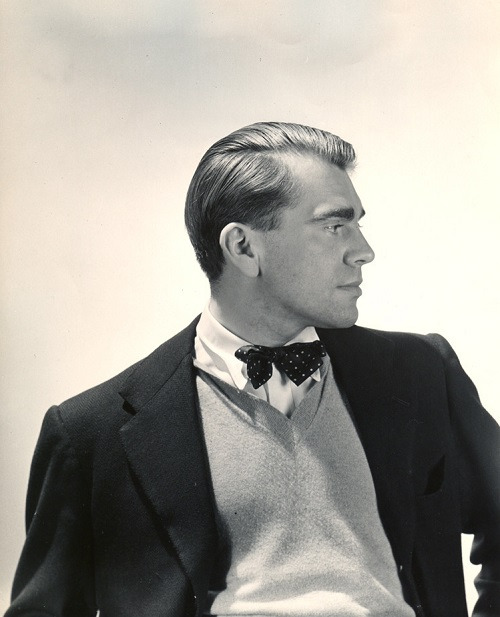


1924 – Ed Koch, former Mayor of New York City, was born on this date. (d.2013)
Koch is a lifelong bachelor, and his sexuality became an issue in the 1977 mayoral election with the appearance of placards and posters (disavowed by the Cuomo campaign) with the slogan "Vote for Cuomo, not the homo." Koch denounced the attack, later saying "No, I am not a homosexual. If I were a homosexual, I would hope I would have the courage to say so. What's cruel is that you are forcing me to say I am not a homosexual. This means you are putting homosexuals down. I don't want to do that." He was able to use this to his advantage by painting Cuomo as a homophobic bigot. After becoming mayor, Koch began attending public events with former Miss America, well-known television game show panelist and consumer advocate Bess Myerson. The strategy made Myerson, who had political ambitions of her own (she later ran for senator), seem like a "First Lady of New York" of sorts.
Koch has generally been less explicit in his denials in later life, and refused comment on his actual sexual experiences, writing
"What do I care? I'm 73 years old. I find it fascinating that people are interested in my sex life at age 73. It's rather complimentary! But as I say in my book, my answer to questions on this subject is simply 'Fuck off.' There have to be some private matters left."
Randy Shilts, in And The Band Played On, his influential history of the early AIDS epidemic in America, discusses the possibility that Koch ignored the developing epidemic in New York City in 1982-1983 because he was afraid of lending credence to rumors of his homosexuality. Author and Activist Larry Kramer has been more pointed in his criticism of Koch. He describes the former mayor as a "closeted Gay man" whose fear of being 'outed' kept him from aggressively addressing the AIDS epidemic in New York City in the early 1980s. In the 2006 movie Shortbus, an openly Gay character resembling Koch (played by Alan Mandell) claims to be an ex-Mayor of New York City, and makes reference to his negligence concerning the AIDS crisis of the 1980s. He was "outed" more directly in Kirby Dick's 2009 documentary about politics and the closet, Outrage, when Village Voice investigative journalist Wayne Barrett states that Koch is gay.


A self-portrait
1938 – Emmanuel Cooper (d.2012) was a British studio potter, writer on arts and crafts, and gay activist.
Born in Derbyshire, Cooper studied at the University for the Creative Arts. He also achieved a PhD degree at Middlesex University. He was a member of the Crafts Council and the editor of Ceramic Review. Since 1999, he was visiting Professor of Ceramics and Glass at the Royal College of Art. He was the author of many books on ceramics, including his definitive biography of Bernard Leach that was published in 2003 , and was also the editor of The Ceramics Book, published in 2006.
In the early 1970s, he was also a cofounder of the Gay Left collective which published an influential journal of sexual politics. After it dissolved he set up a gay artists group and a gay history group, and contributed widely to the gay press, increasingly on the arts and cultural issues. He remained a prominent LGBT rights campaigner throughout his life. He also published several studies of LGBT art, including The Sexual Perspective and Fully Exposed: The Male Nude in Photography.
His 30-year partnership with the television producer David Horbury was the core of his emotional stability. They celebrated their civil partnership in 2006. David survives him.


1945 – Massimo Consoli (d.2007) was known as "the father of the Italian gay movement". Besides being an activist, he was also an anarchist and an historian. In 1998, the State Archive of Italy's Ministry of Culture acquired his extensive archive of Italian gay activist history.
In Italy in the 1960s, Massimo Consoli was so eager for gay activism he subscribed to ONE and The Mattachine Review, despite having only a scant grasp of English. His own pioneering work for gay equality caught the attention of the SID —teh Italian equivalent of the CIA—which interrogated his neighbors, cost him his teaching job, and impelled him to move to the Netherlands. From that safe refuge, he published his Manifesto Gay in 1971 and as a result gay activists immediately formed FUORI! (OUT!) with branches in Rome, Milan, and Turin.
In the early 1980s he lived in New York and became good friends with Vito Russo, but after witnessing the emerging aids crisis he returned to Italy to educate people about safe sex.
Consoli attended the Gay May Day events of 1972 and arranged Italy's first commemoration of Stonewall on June 28, 1976, just one of the hundreds of political events he organized, ranging from demonstrations to conferences to book lectures.
He was the first person to discuss anti-gay violence with the Italian police, who then established a liaison to the gay community; and in 1992 he initiated the demonstration at the Vatican against Cardinal Ratzinger's antigay writings which discuss homosexuality in terms of "an intrinsic moral evil."
Consoli started the magazine Gay News Rome and wrote forty books, two standouts of which are Homocaust, about the Nazi's persecution of gay men, and an autobiographical novel Andata and Ritorno (Round Trip).
He led pilgrimages to the tomb, outside Rome, of Karl Ulrichs, annually on his birthday August 28, and last year he helped get a statue of Ulrichs placed at the grave. Consoli himself died in November 2007, of stomach cancer. His papers dating before 1998 are in the Italian national archives and those after '98 are in a gay archive.


1949 – Today is the birthday of poet and writer Richard McCann.
McCann is best known as the author of the gorgeous Mother of Sorrows, a collection of linked stories that novelist Michael Cunningham has described as unbearably beautiful. It won the 2005 John C. Zacharis First Book Award from Ploughshares and was also an American Library Association Stonewall Book Award recipient, as well as a finalist for the Lambda Literary Award.White Crane reviewed the book, commenting that "McCann evokes a moment with such gorgeous precision that many times I forgot I was reading a book — as if I was dreaming a reality and gasped into the night, waking myself from sleep and having to remind myself it was only a story. What one is left with is a refreshing meditation on the gritty complications of our relationships as gay men. This book has stunning power and an ability to leave the reader breathless at its beauty."
McCann's book of poems, Ghost Letters, won the 1994 Beatrice Hawley and Capricorn Poetry awards. With Michael Klein, he edited Things Shaped in Passing: More 'Poets for Life' Writing from the AIDS Pandemic.


1962 – Jon Vincent (a.k.a. Dave Phillips, John St. Vincent), real name: Jeffrey James Vickers (d.2000) was an American pornographic actor who appeared in gay and bisexual pornography. Though he performed in fewer than 40 films, he is considered a porn legend.
Vincent was known for his muscular body and hyper-masculine demeanor. He was also known for talking dirty and for saying harsh and degrading things to the men with whom he had sex in his films. "He was frequently rough with his co-stars, and was even known to put his fist through a wall during an argument with a director." He identified as bisexual and appeared also in several bisexual porn films.
He co-authored his autobiography Thousand and One Night Stands. He was raised in Louisiana. He wanted to be a professional baseball player, and signed with the Kansas City Royals when he was only 20, but either he was fired when involved in a conspiracy to sell cocaine or an injury ended that pursuit.
At one point, he dated another late gay porn star Joey Stefano. Though he only mentions having sex with whites and Latinos in his autobiography, in the autobiography of British gay porn star Blue Blake, Blake stated that Vincent had a preference for African-American men in real life
"Vincent was a thrill junkie: a compulsive seeker of sexual adventure, physical danger, steroids, alcohol, cocaine and finally heroin. Heroin was stronger than he was; it took over his life and finally killed him." He had been a severe drug addict for decades. He died of a heroin overdose in New York City.


1968 – Today's the birthday of the Russian poet, critic and publisher Dmitry Kuzmin.
Kuzmin started his literary career in 1988 by organizing a group of poets who now are known as the "Vavilon" circle of poets/writers (which means "Babylon"). He and his friends started publishing an independent book series called "The Library of Young Literature". In 1993 he founded the ARGO-RISK Press, an independent poetry press. In 1996 he published the first issue of the Gay almanac called RISK. In 1997 he created the reference site Vavilon.ru where he listed a number of Russian writers. Kuzmin declared that the main purpose of the site was to resist the huge wave of "commercial literature", which began flooding the Russian market for the first time since the 1920's. In 2007, he founded LitKarta, another reference site that provides information on some members of the Russian literary community.
Kuzmin organised quite a number of poetry readings and festivals, "non- commercial", as he referred to them. He claims that he has published about 300 books by other writers (mostly leaflets). He won a few awards for promotion of the works by young writers (including the Andrei Bely Prize). He edits the literary magazine called Vozdukh, and is a contributing editor of the literary journal titled St. Petersburg Review. Kuzmin actively promotes Gay culture and fights homophobia.

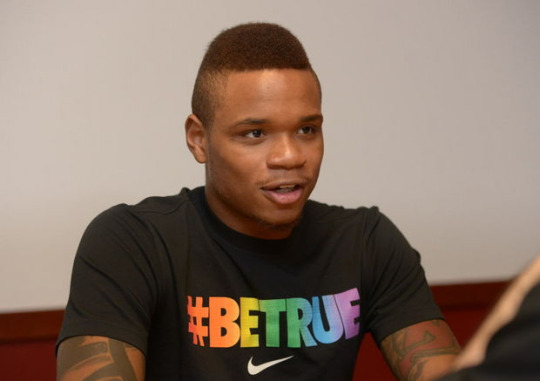
1991 – Derrick Gordon is an American college basketball player. A shooting guard, Gordon attends the University of Massachusetts and plays for the UMass Minutemen basketball team. Gordon used to attend Western Kentucky University, where he played for the Western Kentucky Hilltoppers. In 2014, he became the first men's basketball player in the National Collegiate Athletic Association's Division I to come out as gay and play in a game.
Gordon is from Plainfield, New Jersey. He has two brothers, including a twin. Gordon began to think he might be gay while attending middle school.
In April 2014, Gordon came out to his family and teammates. He subsequently chose to come out publicly, becoming the first openly gay men's basketball player in Division I. Gordon said "I just didn't want to hide anymore, in any way ... I've been waiting and watching for the last few months, wondering when a Division I player would come out, and finally I just said, 'Why not me?'". He further said that Jason Collins' becoming the first openly gay player in the National Basketball Association inspired him to come out.
Gordon's family was mixed in their responses to his coming out. He received praise from Collins and Michael Sam, who became the first openly gay player in the National Football League. Students organized a rally in support of Gordon which drew over 1,500 supporters. Five members of the Westboro Baptist Church were on hand to protest against Gordon. Later that year, he became the first openly gay player in Division I to play in a men's basketball game.
In 2014, he revealed that he was in a relationship with actor Gerald McCullouch.

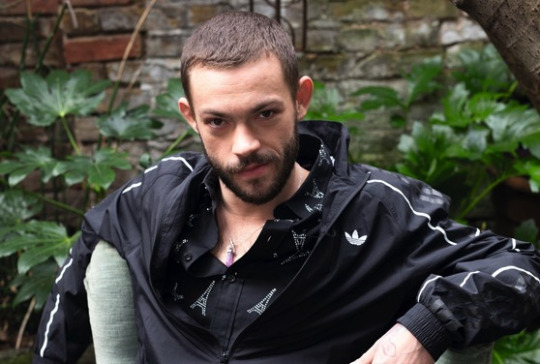
1992 – Félix Maritaud is a French actor, notable for his roles in French queer cinema.
Maritaud began to garner recognition after starring in a string of French independent films, most notably BPM (Beats per Minute). The French LGBT magazine Têtu dubbed him “the new hero of French queer cinema”.
In 2018, Maritaud attracted further attention for his role in the independent film Sauvage, in which he played a homeless sex worker. Peter Bradshaw of The Guardian wrote that "Maritaud’s performance has power." Tara Brady of The Irish Times wrote, "Félix Maritaud is a heartbreaking revelation as a sex worker seeking intimacy in France". Dazed called his performance a "raw, delicate depiction". He won the Lumières Award for Most Promising Actor at the 24th Lumières Awards, for his performance in Sauvage.
In 2019, Maritaud was featured in Gaspar Noé's Lux Æterna. It was screened out of competition at the 2019 Cannes Film Festival.
In 2020, Maritaud starred in a French short film titled Dustin, which was an official selection of the 2020 Cannes Film Festival, but was not able to be screened due to the cancellation of the festival in light of the COVID-19 pandemic in France. It was subsequently screened at the 2020 Toronto International Film Festival, where it was named the winner of the IMDbPro Short Cuts Award for Best International Short Film.
Maritaud is openly gay.

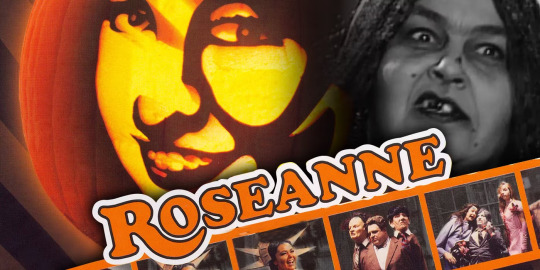
1995 – A "Roseanne" episode portrays a same-sex wedding when character Leon marries his boyfriend Scott. ABC moves the episode from its 8:00 time slot to 9:30 because of the adult humor.

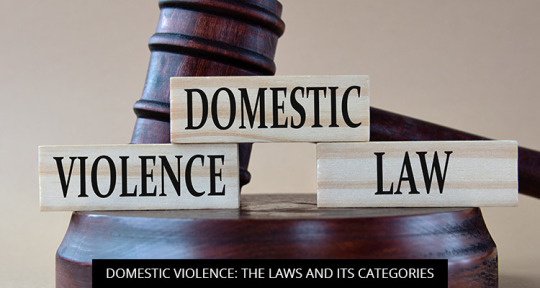
1997 – The Kentucky state Court of Appeals ruled that gay men and lesbians are entitled to protection under the state's domestic violence laws.


16 notes
·
View notes
Text
By Mariel Ferragamo
The countries that comprise BRICS—which stands for Brazil, Russia, India, China, and South Africa, and now five new members—are an informal grouping of emerging economies hoping to increase their sway in the global order. Established in 2009, BRICS was founded on the premise that international institutions were overly dominated by Western powers and had ceased to serve developing countries. The bloc has sought to coordinate its members’ economic and diplomatic policies, found new financial institutions, and reduce dependence on the U.S. dollar.
However, BRICS has struggled with internal divisions on a range of issues, including relations with the United States and Russia’s invasion of Ukraine. Meanwhile, its growing membership is both expanding its clout and introducing new tensions. Although some analysts warn that the bloc could undermine the Western-led international order, skeptics say its ambitions to create its own currency and develop a workable alternative to existing institutions face potentially insurmountable challenges.
Why does BRICS matter?
The coalition is not a formal organization, but rather a loose bloc of non-Western economies that coordinate economic and diplomatic efforts around a shared goal. BRICS countries seek to build an alternative to what they see as the dominance of the Western viewpoint in major multilateral groupings, such as the World Bank, the Group of Seven (G7), and the UN Security Council.
The group’s 2024 expansion comes with a range of geopolitical implications. It represents growing economic and demographic heft: the ten BRICS countries now comprise more than a quarter of the global economy and almost half of the world’s population. The group is poised to exert influence over the wars in the Gaza Strip and Ukraine, the shape of the global economic system, the competition between China and the West, and efforts to transition to clean energy.
14 notes
·
View notes
Text
Exploring Working Capital Loans from Leading Non-Banking Financial Institutions
In today's competitive business landscape, having access to working capital is essential for sustaining and growing a company. One of the go-to options for many businesses is to secure a working capital loan from a non-banking financial institution. These institutions, also known as non-banking financial companies (NBFCs), offer a variety of financing solutions tailored to meet the unique needs of businesses.
One of the key advantages of working with NBFCs for working capital loans is the flexibility that they offer. Unlike traditional banks, NBFCs are often more willing to work with businesses that may not meet the strict requirements of banks. This can be especially beneficial for small and medium-sized enterprises that may not have a long credit history or substantial collateral to secure a loan.
When exploring634Working capital loan is the lifeblood of any business, providing the necessary funds to cover day-to-day operations and keep the business running smoothly. While traditional banks are a popular choice for obtaining working capital loans, non-banking financial institutions are becoming increasingly popular as they offer unique advantages and tailored solutions for businesses of all sizes.
Non-banking financial institution, also known as NBFCs, are financial companies that provide a range of services similar to banks, such as loans, credit facilities, and investment opportunities, but they do not hold a banking license. This allows them to operate with more flexibility and cater to the specific needs of businesses in a more personalized manner.
One of the key advantages of obtaining a working capital loan from a leading non-banking financial institution is the streamlined and efficient application process. Unlike traditional banks, which often have lengthy approval processes and strict criteria, non-banking financial institutions are able to provide quick and hassle-free access to funds, allowing businesses to meet their immediate financial needs without delay.
Additionally, non-banking financial institutions offer a greater degree of flexibility when it comes to loan terms and repayment options. They understand that each business is unique and may have different cash flow requirements, so they are able to customize loan packages to suit the specific needs of the borrower. This flexibility can be a game-changer for businesses that require a more tailored approach to their financing needs.
Another advantage of working with a leading non-banking financial institution for a working capital loan is the personalized customer service. These institutions typically have a team of financial experts who are dedicated to understanding the needs of each individual business and providing personalized solutions that meet those needs. This level of personalized service can make a significant difference for businesses looking to secure the right financing to support their growth and development.
Non-banking financial institutions also offer competitive interest rates and fees, making them a cost-effective option for businesses seeking working capital loans. In many cases, they are able to offer more competitive rates than traditional banks, allowing businesses to save money on their financing costs and improve their overall financial performance.
Overall, exploring working capital loans from leading non-banking financial companies can be a smart choice for businesses looking for a more personalized, efficient, and cost-effective financing solution. With streamlined application processes, flexible loan terms, personalized customer service, and competitive rates, non-banking financial institutions are well-equipped to meet the unique needs of businesses and help them achieve their financial goals.
0 notes
Text
this is a really weird thing to complain about perhaps + has a really simple fix of "why don't you just switch banks then bc no one cares??"
but last year (maybe the year before?) my bank switched from a very conservative navy blue, berry red, and steel grey colour scheme that had a sort of feel of professional detachment to it that i've come to associate with dry corporate things like banking, to this "fun" new thing that's lime green and hot pink, with (mostly) light grey text on dark grey backgrounds, and uses exclusively black and white pictures of Attractive Diverse Youths of an Indeterminate Age Doing Fun Millennial-Appealing Non-Banking Activities to try and jazz it up, and i... i don't... hate it, but it feels... wrong?
it feels too very specifically engineered. calculated. like, you're a bank. you're a financial institution owned by a larger one that has all the money in the world and does not care to help a single soul with it, but you know it doesn't matter because we're stuck with you anyways.


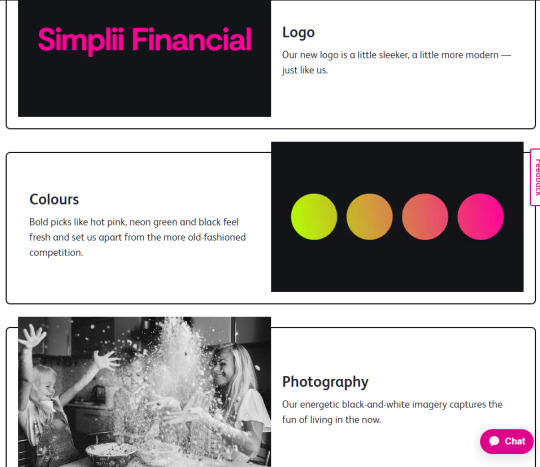
"free spirited photography" "old-fashioned competition" "energetic black-and-white imagery" why does it feel like they're trying to convince me of something?? this is like a new wave social media app that hasn't figured out how manipulative phrasing has worked yet.
the whole thing feels disingenuous and tacky. they're an online only bank, so they're trying to appeal to millennials and younger by being Hip and Cool with the Youths, but it just feels sour. reminds me a bit of 'they live (1988)'-ish, or when you get a new job and they're like "we're a family here! 🥰" and everything is really sleek and buzzfeed/tech startup-esq and counter-productively techy in a really inhuman way and you end up getting fired over zoom by a bohemian chic hr woman wearing fashion glasses she doesn't need with bangles that jingle the entire time she gesticulates while telling you she's really-really sorry your mom has cancer, but you did break company policy by taking 10 days off this year 😢
also when i say "i don't hate it" i mean uhm. if this was the kind of colours and imagery that someone was using to promote a community-based event that involved interacting with other people, i would find it enjoyable and engaging. but there's something about it being used to encourage engagement with an app designed to take my money that makes me feel uhh well all of the above i guess.
i don't know. corporations have more access to us on a deeply personal level than ever before, so when i see things like this it makes me nervous to think about how many greedy corporate execs sat in a room workshopping the best way to seem like Your Cool Friend like some sort of shapeshifting social parasite. but maybe i'm just paranoid.
#hellooooooooooo i am reading too much into this but i can't help how i feel. it might be the hangover talking#all of this is bc i need to go by drywall to patch the hole we made in my guys wall that he's freaking out over#(RELAX i can fix it seamlessly oh my god chill out about the deposit i'm so good at this)#and i opened my banking app to shuffle money around and he went ''woah your bank is watermelon themed??''#jj stuff
26 notes
·
View notes
Text
ASTRO 101 - THE HOUSES (PART I)
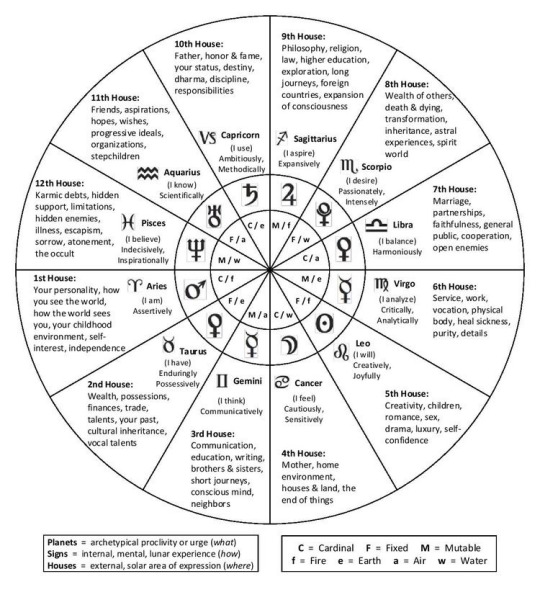
FIRST HOUSE - I AM
(The First House is ruled by Aries and Mars.)
The first moment you open your eyes to the world, first breath, first sight, first intention and first experience
General appearance, form and shape, physical body, general health, vitality and energy, action
Character, identity, self image, personality, mask, self interest, how others perceive you, self expression, independence, behavior, name, attitude, fame
How you see the world, how the world sees you
Spirit, life, ego, soul body
First impressions, beginnings
Head, face, eyes, blood, brain, muscular system
The moment of birth and people around you, place of birth and atmosphere, birth experiences, mother’s health and experiences during childbirth
SECOND HOUSE - I HAVE
(The Second House is ruled by Taurus and Venus.)
Material and non-material resources, attitude toward possessions,
How you make money or meet obligations, self worth
Personal finances, money matters, sense of value, stocks and share, trade, jewelry, documents, cash money, valuables, wealth, possessions, trade, material possessions, luxuries, banking activities, loans, economic situation, wares, rank, guarantee, financial security, artworks
Talents, comfort zone, security, self esteem, valuables, sense of values, resourcefulness, nutrition
Face, neck, throat, vocal cords, thyroid, metabolic system, voice and vocal talents
Economy, sovereign debt, colonies, fees, trade, banks, internal debts, artistic approaches of a country
THIRD HOUSE - I THINK
(The Third House is ruled by Gemini and Mercury.)
Conscious mind, memory, mental confusion, communication, intellect, mentation, thinking
Skillfulness, study, ability, writing, speaking, researching, learning, reading, perceiving, adaptability, ability to learn foreign languages
Depthless thoughts and informations, smattering
Elementary and primary education, puberty
Siblings, brothers, sisters, cousins, close relatives and neighbors
Short trips, tour, daily travel, neighborhood, public transports, vehicles, motorbike, cars, train, bus, boats, urban roads
TV, radio, telephone, computer, mails, messages, text, communication network and channels, short correspondence on social media, weather forecast
Shoulders, collar bone, arms, hands, fingers, lungs, nerves, the nervous system
Bookstore, library, school, post office, educational institution, streets, telephone kiosk
FOURTH HOUSE - I FEEL
(The Fourth House is ruled by Cancer and Moon.)
The place where we live with the family, home atmosphere, home life, house, mother, family, lineage, family matters, ancestry, custom, femininity
Subconscious, things we hide about ourselves, emotional problems, early childhood, depression, personal commitment, the deepest and the darkest point of the chart
Old age, the end of the life, diseases, grave
Land, realty, genetic heritage, underground sources
Chest, breaths, stomach, uterus, diaphragm, upper alimentary system
Agricultural enterprise, historical values, mining site, real estate, refuge facilities, farmers, cemeteries
FIFTH HOUSE - I WILL
(The Fifth House is ruled by Leo and Sun.)
Actions and activities we do for ourselves, things we like to do, hobbies, how do we spend our free time, creativity, activities we enjoy, pleasure, self expression, risk taking, leisure time, artistic talents,
Love, romance, dating, courtship, love affairs, the way we flirt
Children, birthing and creation, the character of our children
Acting, drama, dance, music, sports, artists, celebrities, stage
Games, cards, puzzles, fun, amusement, games of chance, gambling, speculative investment
Chest, upper back, heart, spine, cardiac system
Hotels, entertainment centers, casino, beauty shops, coiffeur, resort, amusement park, cinema, theatre, sports center, park, art exhibition
SIXTH HOUSE - I ANALYZE
(The Sixth House is ruled by Virgo and Mercury.)
What we do to survive, daily work, everyday routine, details, skills
Work routines, where we specialize our skills, workers, competition, employment, workmates
House of sickness, exhaustion, disease, allergies, health, physical body, physical condition
Issues that tire us and weaken us, drugs and addictions
Pets and animals
Abdomen, intestines, lower liver, alimentary canal, spleen, digestive nerves
Hospitals, health care providers, employees, service sector, trade unions, state employees, restaurants, food and beverage services, enemies, soldiers, police, military, army, security guard, navy, animal clinic

#astrology#aesthetic#birth chart#astro notes#astroblr#astroloji#astro natal#astro101#zodiac#horoscope#firsthouse#second house#third house#fourth house#fifth house#sixth house#astro houses#aries#taurus#gemini#cancer#leo#virgo#astrology blog#girlblogger#mars#venus#mercury#moon#zodiac signs
239 notes
·
View notes
Text
Right-wing dark money activist Leonard Leo launches $1BN crusade to "‘crush" liberal America

Alex Rogers at Financial Times:
The conservative activist who led the crusade to overhaul the US legal system is making a $1bn push to “crush liberal dominance” across corporate America and in the country’s news and entertainment sectors. In a rare interview, Leonard Leo, the architect of the rightward shift on the Supreme Court under Donald Trump, said his non-profit advocacy group, the Marble Freedom Trust, was ready to confront the private sector in addition to the government. “We need to crush liberal dominance where it’s most insidious, so we’ll direct resources to build talent and capital formation pipelines in the areas of news and entertainment, where leftwing extremism is most evident,” Leo told the Financial Times. “Expect us to increase support for organisations that call out companies and financial institutions that bend to the woke mind virus spread by regulators and NGOs, so that they have to pay a price for putting extreme leftwing ideology ahead of consumers,” he said.
Leo has spent more than two decades at the influential Federalist Society, guiding conservative judges into the federal courts and the Supreme Court itself. In 2018, conservative justice Clarence Thomas joked that Leo was the third most important person in the world. Leo’s efforts culminated under Trump’s presidency, when three Federalist Society-backed judges were appointed to give conservatives on the Supreme Court a 6-3 supermajority, and profound influence over US law. The court has since then ruled to overturn the right to an abortion, among other long-sought rightwing causes. In 2020, after Trump lost the election, Leo stepped back from running the daily operations of the Federalist Society, while remaining its co-chair. The following year, Leo founded Marble, with a $1.6bn donation from electronic device manufacturing mogul Barre Seid, to be a counterweight to what he said was “dark money” of the left. He spent about $600mn in its first three years, according to public financial disclosures.
Leo said his goal was to find “very leveraged, impactful ways of reintroducing limited constitutional government and a civil society premised on freedom and personal responsibility and the virtues of western civilisation”. The $1bn money machine is now funding the conservative mission against private institutions, opposing diversity, equity and inclusion policies, climate and social concerns in investing and the “debanking” of politically conservative customers, in addition to taking on the public sector. The non-profit is increasingly interested in launching campaigns against “woke” banks and China-friendly companies involved in everything from food production to autonomous vehicles in the US and potentially Europe. Leo also intends to invest in a US local media company in the next 12 months, although he has not decided which, and is building conservative coalitions through groups such as Teneo Network, a club with chapters across the country. He also confirmed that Marble had since 2021 helped fund organisations that launched campaigns against companies with DEI, ESG and other initiatives, including BlackRock, Vanguard, American Airlines, Coca-Cola, State Farm, Major League Baseball and Ticketmaster.
The Financial Times interviewed right-wing dark money activist Leonard Leo, as he announced plans to launch a $1BN crusade to "‘crush" liberal America.
Leo has hinted that he’ll invest in an unnamed American media company within the next year.
19 notes
·
View notes
Text
The Middle East teeters on the brink of a regional war, and Israel’s conflict with Hamas hit the one-year mark on Oct 7. The longer that such wars—particularly when they are centered around long-standing geopolitical hot spots—go on, the greater their potential to spread—not just militarily, but also into the tangled domains of hybrid warfare, where political, strategic, and economic demands meet. Russia’s war in Ukraine offers a telling set of examples of what might be to come in the Middle East.
While the start of Russia’s full-scale invasion of Ukraine in February 2022 brought global attention to the conflict, the war was already long underway. Its start came with the Euromaidan revolution in Kyiv in 2014 and Russia’s subsequent annexation of the Crimean Peninsula, which was followed by Russian support of pro-Moscow separatists in eastern Ukraine during the ensuing years. Attempts at international mediation and negotiations over a cease-fire ultimately proved unsuccessful, leading to a gradual escalation of tensions between Russia and Ukraine that exploded into full-scale war nearly a decade later.
The hybrid dimension of the conflict has emerged as a pivotal component of the war. This spans everything from sanctions to cyberattacks to proxy conflicts between Moscow and Kyiv that go far beyond the front lines in Eastern Europe. And it’s played nearly as critical a role as the battlefield in shaping the course of the war.
Sanctions and other forms of economic restrictions have been some of the most actively used tools by Western states to pressure and weaken Moscow without having to get militarily involved in the conflict directly. The United States and European Union have levied thousands of sanctions against Russia, including against individuals, companies, and entire sectors such as banking and energy. For Washington, this has also included the use of secondary sanctions, which are designed to punish or dissuade non-Russian countries or companies from engaging with those sanctioned entities.
These strategies have been applied to various countries—from China to India to the United Arab Emirates—and reshaped global trade and financial flows while also spurring such countries to seek out loopholes and workarounds in order to mitigate their economic impact.
One case in point is the Central Asian state of Kyrgyzstan. One of the country’s largest banks—MBank, owned by former Prime Minister Omurbek Babanov—is reported by the Kyiv Independent to be working with Russia’s Sberbank, which has been sanctioned by the EU and United States. One of the mechanisms allegedly used by MBank to bypass sanctions involves a partnership with Bank 131, a Sberbank subsidiary that facilitates international payments.
Through a Singapore-based financial technology company called Thunes, MBank has reportedly reestablished payment channels linked to Sberbank, allowing it to conduct transactions in clear violation of the sanctions. Babanov himself is reportedly facing potential sanctions due to allegations that his company, Asia Cement, is linked to Russia’s nuclear industry.
MBank is not alone in this scrutiny. Other major Kyrgyz banks, including RSK and Keremet, are also under the spotlight for potentially bypassing anti-Kremlin sanctions. Both institutions rely on services from the KartStandard processing center and a local affiliate, CSI, which are effectively subsidiaries of Russia’s CFT Group, a company sanctioned by the United States in August.
If MBank and other Kyrgyz businesses continue their apparent engagement with sanctioned Russian companies, they may face secondary sanctions from Washington and the EU, which could in turn lead to Kyrgyzstan’s financial isolation, loss of access to international markets, and diminished foreign investment. Sanctions have been a potent tool for the West—and one that can affect countries far beyond the front lines.
Another key area is the cybersphere. Cyberattacks are, of course, not a new phenomenon, but they have been increasingly used by Kyiv and Moscow against a growing list of targets, including military sites, government agencies, and critical infrastructure such as energy grids and power plants. Russia has also employed cyberattacks and disinformation campaigns against Ukraine’s Western backers, most notably during its efforts to interfere with U.S. elections in 2016, and has shown no signs of abating such practices in the current election cycle.
A third arena in the hybrid sphere of the Russia-Ukraine war has taken the form of proxy conflicts, with the Middle East and Africa serving as key theaters. In the case of the Middle East, Russia has ramped up its support for anti-Western regimes since 2014, from intervening in the Syrian civil war in support of Bashar al-Assad in 2015 to beefing up cooperation with Iran.
Escalating tensions in the Middle East more recently have not deterred Moscow from providing such support, with Russia increasing economic and security ties with Iran, while the two countries reportedly plan to sign a strategic partnership agreement at the upcoming summit of the BRICS bloc (comprising Brazil, Russia, India, China, South Africa, and several recently added members) in late October.
In Africa, the Russia-Ukraine proxy war has taken on a more direct dimension, particularly in the Sahel region. Russia and Ukraine back rival sides of the Sudan conflict, with Russian Wagner Group mercenaries supporting the paramilitary Rapid Support Forces while Kyiv backs the Sudanese Armed Forces. Ukrainian special forces have reportedly participated in drone strikes against Wagner forces in Sudan, and Ukraine also was accused of providing intelligence to rebels in Mali for an attack on Wagner forces operating there. Such a move prompted Mali and Niger to cut diplomatic ties with Ukraine, while Moscow accused Kyiv of opening a “second front” in their war.
The multidimensional nature of the war has complicated efforts to resolve the it diplomatically, given the sheer number of players pulled into the conflict and their complicated web of competing interests.
The Middle East could see similar hybrid dynamics emerge or strengthen in parallel to the military component of the conflict. This could include everything from the economic spread of anti-Israel boycotts to the politicization of the conflict in countries throughout the Muslim world to the growing use of cyberwarfare both within the region and outside of it.
After all, the war in Ukraine has shown no bounds when it comes to hybrid implications, with various aspects of connectivity between those involved—from energy to grain to telecommunications—being weaponized in the conflict.
This should serve as a cautionary tale for the Middle East. The longer that conflict drags on, the more players that it is likely to pull in (whether directly or indirectly) and the greater the consequences will be. Without a concerted effort to resolve or at least mitigate the conflict diplomatically, the hybrid components of the Russia-Ukraine conflict could be a sign for what’s to come in the Middle East—and far beyond.
8 notes
·
View notes